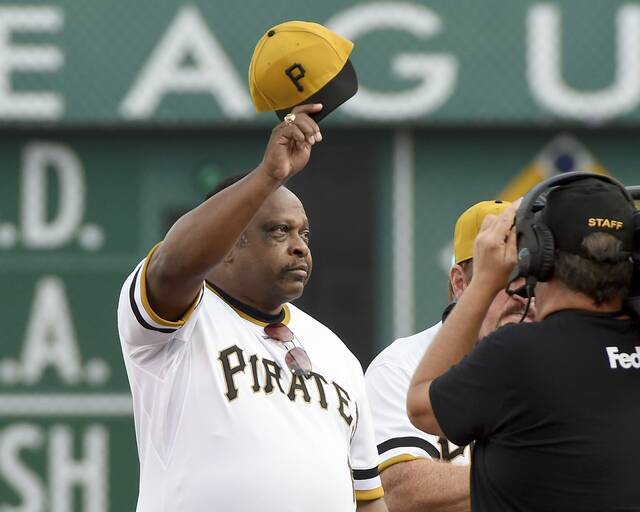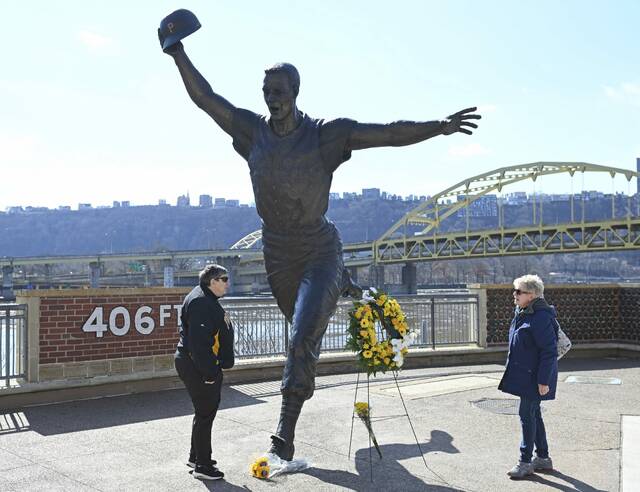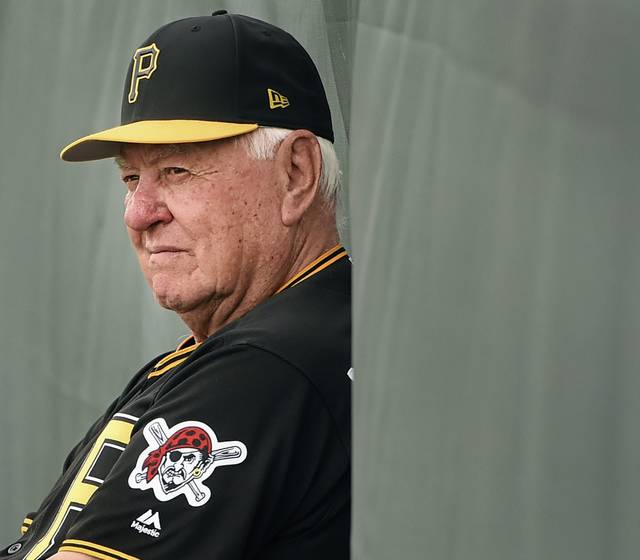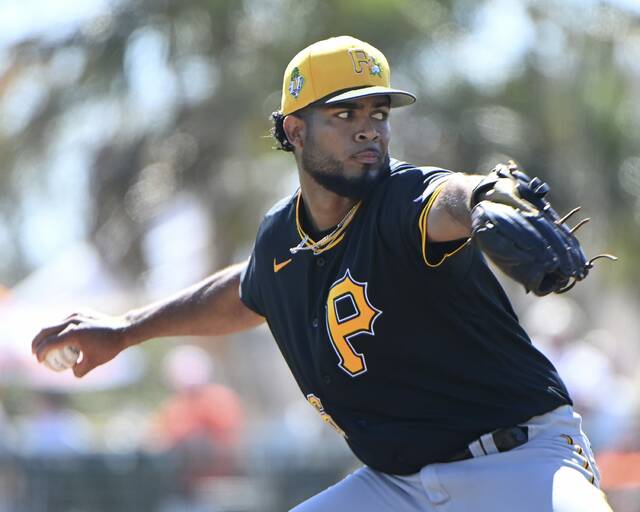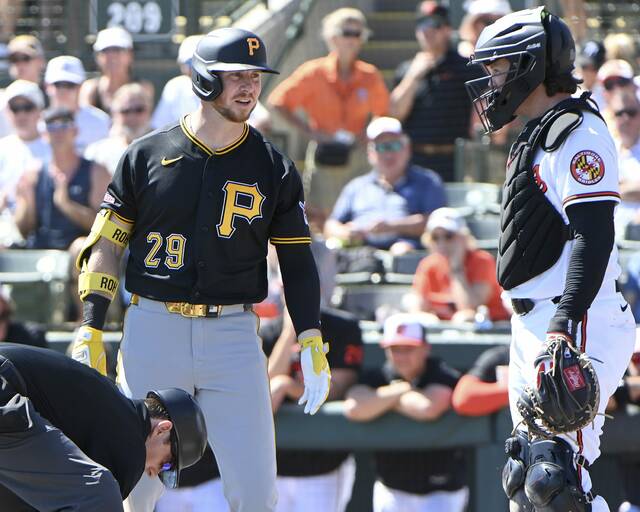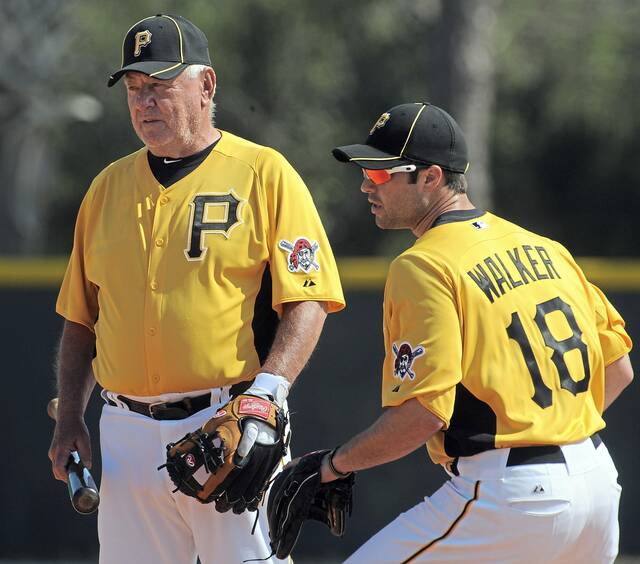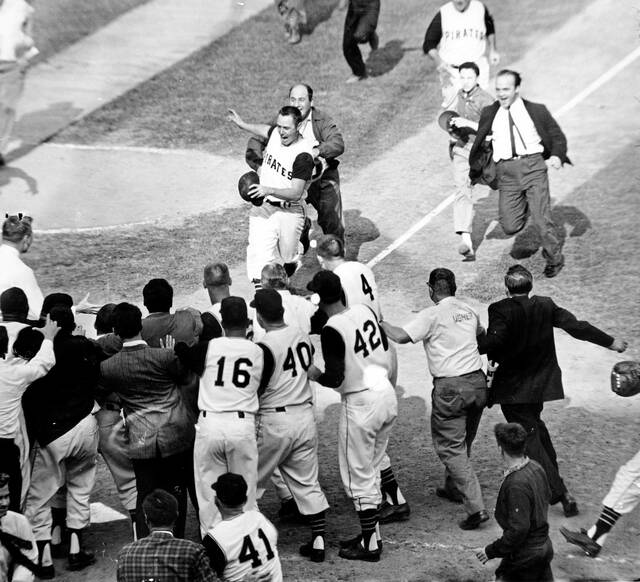Al Oliver finally got the Hall call he was waiting for — not the one everyone talks about — and treated it with the same approach he did when a pitch he liked came across the plate.
Oliver knows if he’s ever going to be elected to the National Baseball Hall of Fame, he first had to be inducted into the Pittsburgh Pirates Hall of Fame. That honor comes Friday in a 2025 class that includes KiKi Cuyler and Vernon Law, and Oliver hopes it’s one that could open the door for him to get a plaque in Cooperstown.
“They asked me if I was ready. Of course, I am ready. I stay ready,” Oliver told TribLive. “I’ve always been that way, to accept things as they are and, sometimes, not as you’d like for them to be. As it’s gotten closer, I have become more into it now and what it really means. It means that I am where I should be — and that’s a Pirate.”
Oliver believes the Pirates were the perfect place for him to play the first 10 seasons of an 18-year major-league career, not just because of the talent that surrounded him but the blue-collar town he lived in. Where Portsmouth, Ohio, had the brickyards, Pittsburgh had the steel mills.
A seven-time All-Star and 1982 National League batting champion who won the World Series with the 1971 Pirates, Oliver was often overshadowed by his Hall of Fame teammates. There was Roberto Clemente, Bill Mazeroski, Willie Stargell and Dave Parker with the Pirates; Ferguson Jenkins and Gaylord Perry with the Texas Rangers; and Gary Carter, Andre Dawson and Tim Raines with the Montreal Expos.
“I wasn’t a publicized major leaguer, and people always wondered why,” Oliver said. “It wasn’t because I played with those guys. I was a guy that kept rallies going, was able to hit in the clutch and helped the Pirates win games. Usually when a guy does that — gets key hits — it shouldn’t make any difference who I played with. It came down to those guys were publicized players — and should have been — but I feel and know at times that a lot of players got more publicity than I did but I was just important because I helped them win games. That’s the thing that was overlooked.”
Oliver’s career slash line — .303/.344/.451 — is Hall-worthy. Not only did he have more hits (2,743) than Parker (2,712), but it’s a bit surprising to see that “Scoop” also had more doubles (529-526) and triples (77-75) than the “Cobra” and the same OPS+ (121).
Oliver and Parker discussed their omission from Cooperstown for years, though Parker had a decided advantage with an MVP and three Gold Glove awards. A first baseman who moved to center field, Oliver joked that his arm was a “pea shooter” compared to Stargell and Clemente. But he made the sacrifice for the sake of the team.
“Dave said, ‘Scoop, they might as well go ahead and put both of us in at the same time and be done with it,’” Oliver said. “I said, ‘Dave, I hear you, brother, but that’s not going to happen.’ I know he was really pulling for me and hoped the next go-round that I would get the opportunity to make a speech at Cooperstown. It would be nice if that day would come, but it’s something I really haven’t thought about. My family, we don’t talk about the Hall of Fame. They firmly believe that I’m going in. They can’t leave me out. I said, ‘Well, I hear you talking. It’s a whole lot of people talking that I should go. It’s a whole lot of respect you’ve given me, but you won’t be voting.’”
Oliver never got much of a chance from the Baseball Writers Association of America voters. In his first year of eligibility, he was one of 48 candidates on the ballot and received only 4.3% of the vote. That was it, a one-and-done. In 2008, he got another shot but received 14.1% of the vote from the Veterans Committee, far short of the 75% needed.
If Oliver had 3,000 hits to go with his .303 batting average, he would have received a rubber stamp. That his career ended 257 hits shy of the benchmark can be traced to the collusion that prevented him from playing in 1986. Oliver was awarded $680,031.05 in damages, but that’s not fair compensation for what it has cost him.
Former Pirates pitcher Jim Rooker believes Oliver was capable of hitting 300 home runs. Instead, he hit 219 while concentrating on chasing batting crowns. Rooker said Oliver hated hearing the baseball phrase “get ’em next time,” preferring to get a hit every time. And if MLB tracked exit velocities back then, Rooker wonders how Oliver’s would have compared to power hitters like Stargell and Parker.
“Nobody hit the ball harder day after day after day like Al did. It amazed me,” Rooker said. “I loved to watch him hit. He had a short stride, lifted his leg up a little bit. He was so locked in. … As a hitter, you just loved his approach, how he could lock in and hit the ball consistently so hard. He was more of a line-drive hitter. Had he wanted to be a home run hitter, he could have hit 30-40 a year. But I think the batting average was more important to him. He was just a damn good hitter.”
From his days of Little League to the big leagues, Oliver always barreled the ball. The way he reasoned it, there weren’t too many hits in the air. His style complemented those of Clemente, Stargell and Parker. And, somewhat surprisingly, Oliver had more stolen bases (84) than Clemente (83) even though he learned early on not to steal when hitting in front of Stargell because opponents would then walk the slugger. Stealing bases was stealing swings from Stargell, which was counterproductive.
“I never had to worry about .300. Hitting was a gift for me that I never had to work at,” said Oliver, who topped that average in 11 of the 16 seasons in which he played 100 games or more. “Rook was right. I could have hit more home runs and still hit .300, but I enjoyed hitting those line drives. I always joked with the guys and said, ‘The infielders need to put their chest protectors on and the outfielders needed to put their track shoes on.’ … That was the style of hitting that was successful for me and the team, so I don’t feel bad about it at all.”
What Oliver feels good about is that his family — son Aaron, daughter Felisa and his grandchildren — will all be together for the first time in a long time to celebrate at PNC Park. If his Pirates Hall of Fame induction leads to another in Cooperstown, Oliver welcomes it. If not, he’s still thrilled to be honored by the team with which he won a World Series.
“It all comes down to this: They’re bringing me back to the city that I left that was known as the City of Champions,” Oliver said. “That’s what it means to me. I’m coming back home.”


